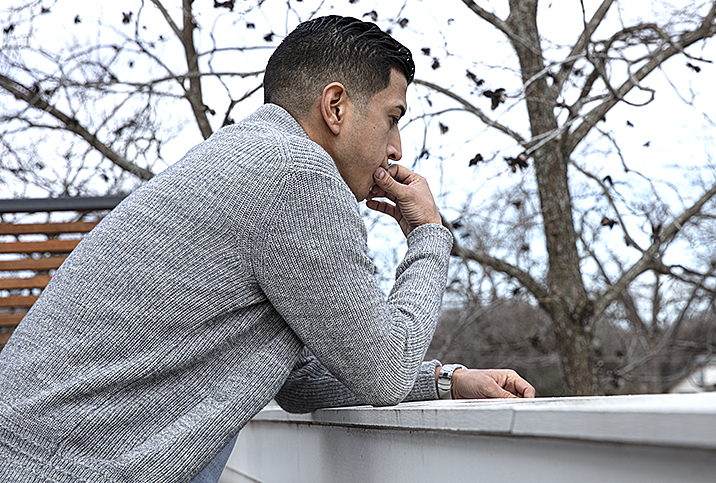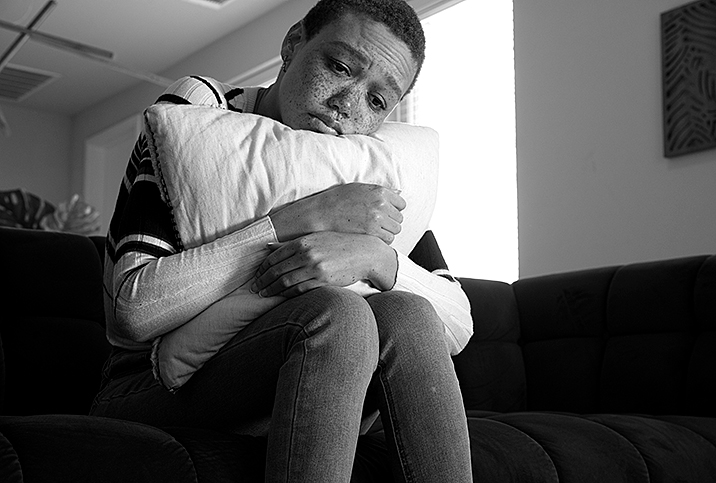Sex and Chronic Pain

We’ve all experienced pain, the unpleasant, uncomfortable feeling that causes a reaction, such as yelling “Ouch!” Evolutionarily speaking, pain is our body’s way of telling our brain, “Something is wrong here!” It’s how we realize the water we’re touching is too hot or a body part is injured.
In most cases, after a wake-up call signaling something is painful, we do what we can to alleviate that pain. But pain that lingers for months, or even years, can be debilitating for people who suffer from it.
Chronic pain is ongoing, lasting more than three months, often long after the stimulus has disappeared or healed. It may be the result of surgery or trauma, but sometimes the reason is indeterminate (psychogenic pain). Chronic pain is the primary cause of long-term disability in the United States, affecting 20 percent of American adults, and at least 1.5 billion people worldwide.
Treatments such as medication, medical procedures, physical therapy, yoga, massage, meditation and more are available. Typically, chronic pain is not eliminated, only managed. Suffering from constant pain has immense potential to affect mental health as well, resulting in depression, anxiety, frustration, mood changes, anger or fear of reinjury. An individual may lose interest in pastimes once important to them and avoid social situations or activities, including sex.
Impact on sex life
Engaging in sex can be difficult for chronic pain sufferers. Certain positions are difficult or impossible for people with tense muscles or limited mobility. A 2015 survey showed 72 percent of patients with low back pain had sex less frequently, and 70 percent found sex less satisfying. Sixty-one percent said their pain made relationships more difficult to maintain.
You may struggle to work up the motivation to engage in sex at all if you’re feeling drained of energy, or are anxious or depressed. You might feel guilty that a partner is unsatisfied or doesn’t understand your disinterest. If you’re single, symptoms can affect your interest in meeting people. Who wants to get dressed and head out in public for a date when they feel awful? How do you explain what you’re dealing with to a potential new partner? All of this makes a lot of chronic pain sufferers want to curl up on the sofa and shut other people out.
Managing your sex life
If you’re single and dealing with chronic pain, dating may not be a priority right now, and that’s OK. Your well-being and comfort come first, and if sex exacerbates pain or increases the stress you feel about it, you don’t have to participate.
However, assuming you have your doctor’s go-ahead, sex can actually be helpful for chronic pain sufferers, because pleasure increases endorphins and oxytocin, hormones that make you feel good. Sex also allows you to feel connected with someone during a time you may be feeling alone.
If you want to date but haven’t been able to try, have a discussion with friends (or even a sex therapist) about how to get back out there. Plan dates that are least likely to exacerbate symptoms; for example, if you have headaches, choose a place without loud music or bright lights. Consider telling your date in advance what’s going on.
If you have a long-term partner, talk to them about how you’re feeling. If you aren’t making love, ask how they feel about that and make sure they’re hearing your perspective. If you want to try to have sex, work together to maximize comfort. You can also get close in different ways, such as touching, kissing, bathing and oral sex, to name a few.
Chronic pain is a challenging condition to live with, but it doesn’t have to be the end of your sex life if you don’t want it to be.


















